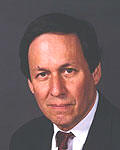|
|
|
|
|
|
|
News & Views item - July 2009 |
![]() Australian Academy of Science Offers Some Advice on Federal Science Policy.
(July 15, 2009)
Australian Academy of Science Offers Some Advice on Federal Science Policy.
(July 15, 2009)
 Prof. Bob Williamson |
When the 2009-10 Federal Budget was brought down, the president of the Australian Academy of Science, Professor Kurt Lambeck noted that while additional funding for 100 post-doctoral fellowships was provided, a critical lack of support for mid-career researchers remained.
He was also critical of the fact that while there was considerable focus on
material infrastructure, the human infrastructure still didn't get a great deal
of attention, and in his view support for mid-career researchers is needed to
ensure the next generation of university teachers and scientists: "We do need
people in the future who can make effective use of the new state-of-the-art
facilities [funded by the Super Science initiative]." In addition he believes
more attention needs to be given to support international scientific
collaboration.
Nevertheless he said the 25% budget increase [for science and innovation] is
"substantial at a time of restraint. It indicates that the government has
finally recognized the importance of science and technology. ... It really goes
out of its way to start repairing the consequences of a decade of neglect.
Although some of the funding might not flow through for a few years, the
framework is there".
Now with the passage of two months Professor Bob Williamson, the Academy's Science Policy Secretary, has made additional comment in an interview with The Australian's Luke Slattery.
Professor Williamson in following up the AAS' president's point regarding mid-career researchers: "In Australia engineers and accountants can expect to have a career of 10 to 20 years after graduation, but Australian science is unique. Unlike other countries, much of our scientific research is done by people who are on three-year renewable grants from research councils even when they are senior and in their 40s, which greatly increases the feeling of job insecurity."
He went on to say that "the academy supports generous funding to a smaller number of groups of true international quality, with the ability to act as national centres for research and teaching, as in the centres of excellence schemes offered by the ARC(Australian Research Council) and NHMRC (National Health and Medical Research Council), rather than sharing manifestly inadequate support between many groups. [Furthermore], The government must play a part in setting these priorities and be particularly aggressive in ensuring that innovative research, which is often interdisciplinary and may not fit into existing boundaries, is allowed to flourish."
The Academy has also made the point that commonwealth spending on science and innovation had fallen 22% as a share of gross domestic product since 1993-94 and Professor Williamson notes, as have a number other academics, that while budget outlays for science and innovation were a step in the right direction, especially in the light of the financial situation, Australian spending in those areas still lagged other countries. Nevertheless, he told Mr Slattery: "The academy welcomes any initiatives that cut across departmental, state and federal boundaries to allow funding at a level that will allow development of a critical mass in Australia."
Whether or not Professor Williamson's comments are a set of subtle suggestions with regard to the Academy's views on block funding vs greater direct funding to ARC and NHMRC grantees, its assessment of the value of the government's Excellence in Research for Australia (ERA) initiative or how the government should "allow development of a critical research mass in Australia", e.g. to what degree should research priorities be set from the top down, is moot -- but it shouldn't be.